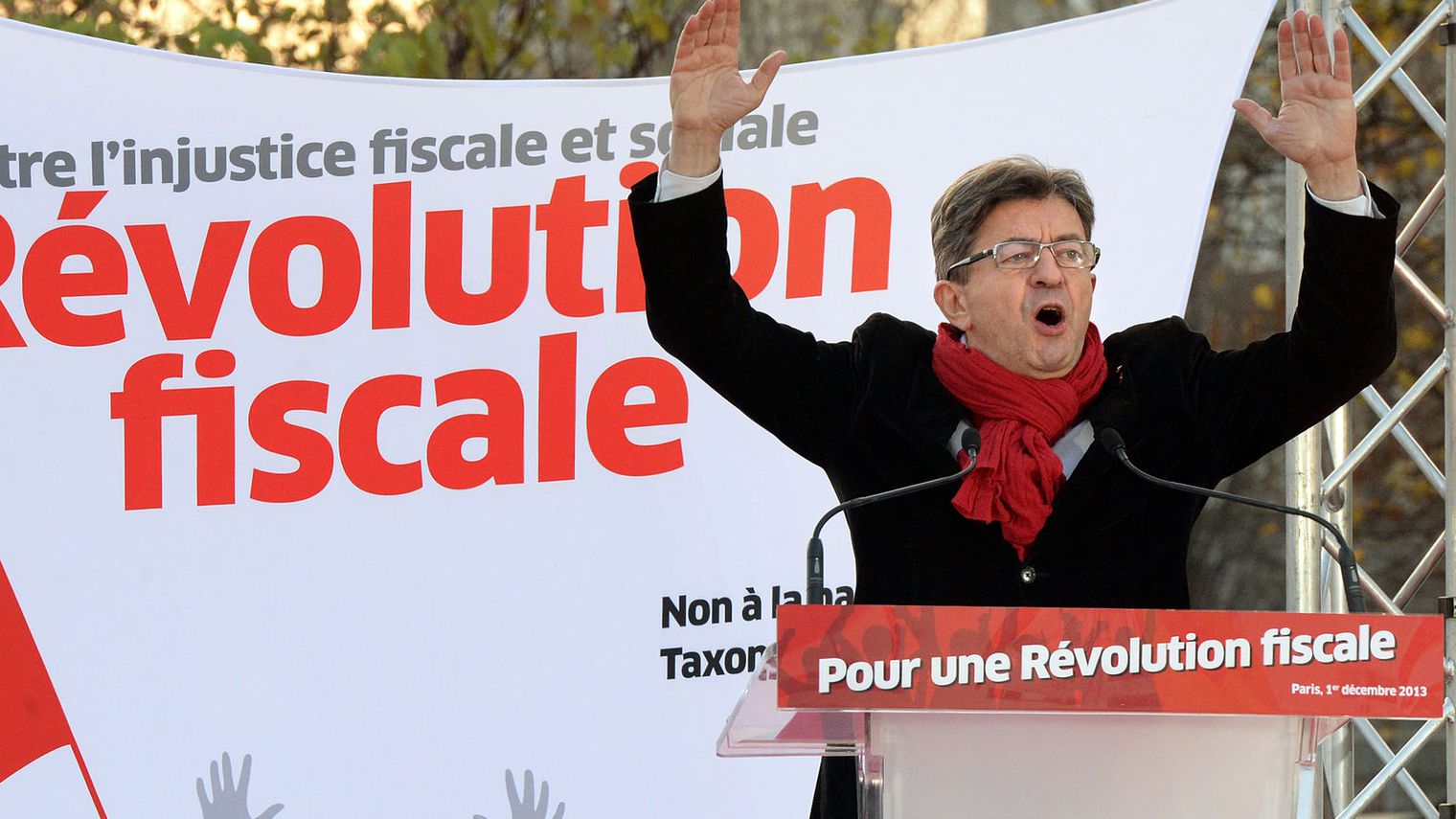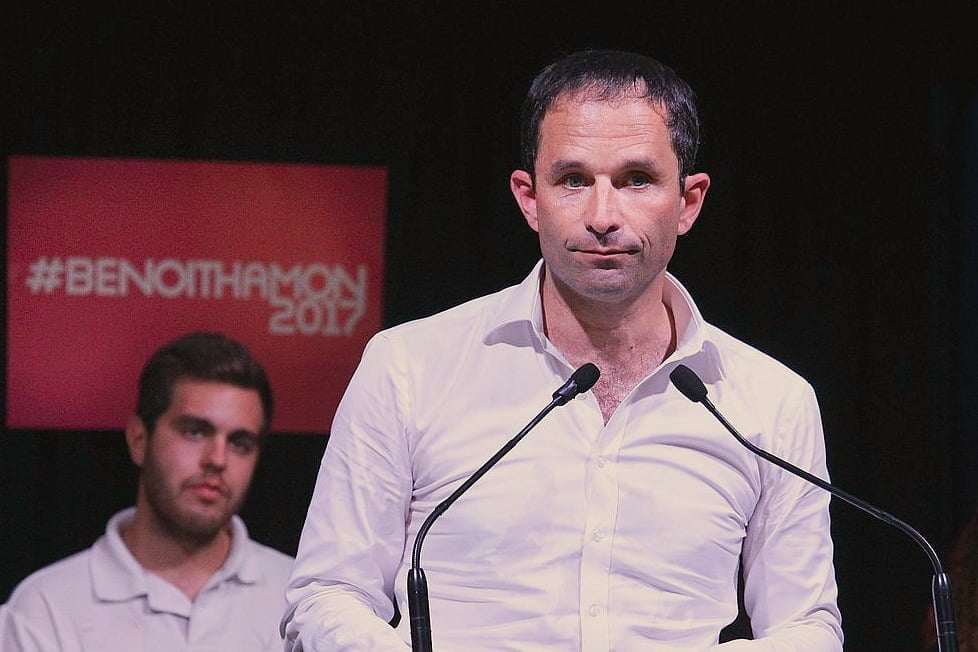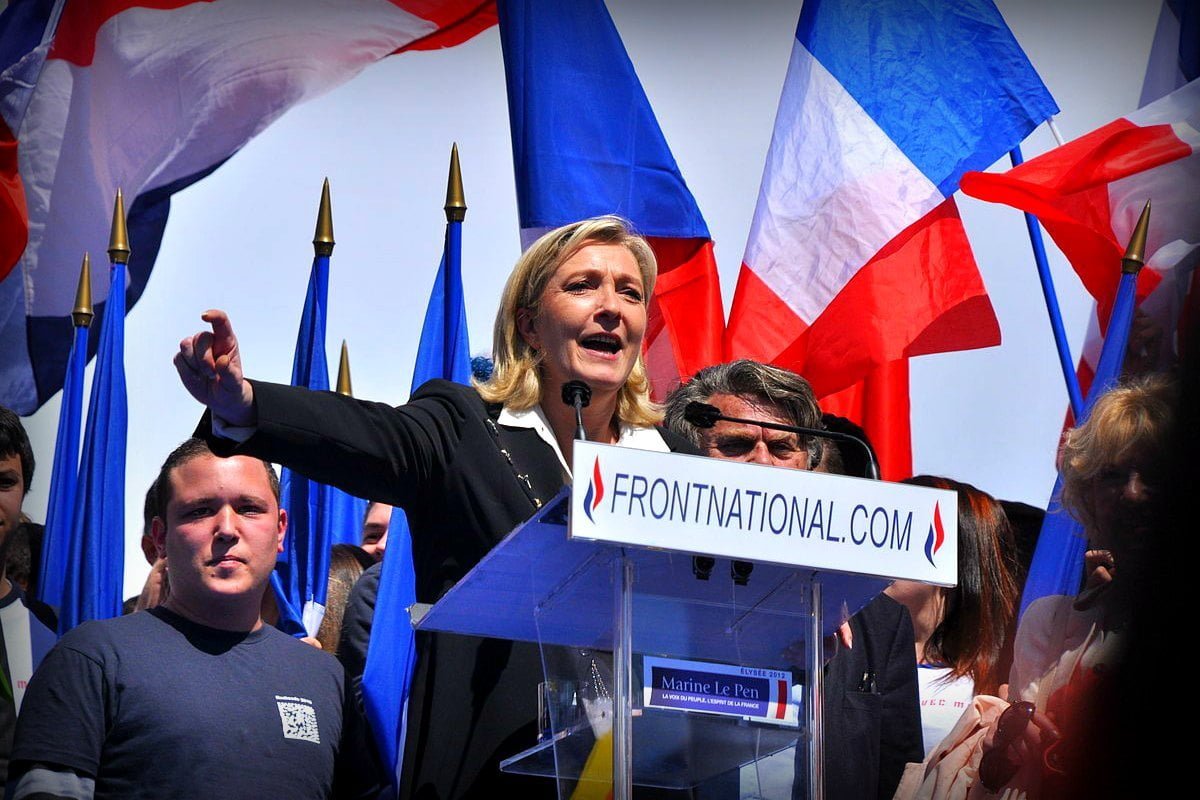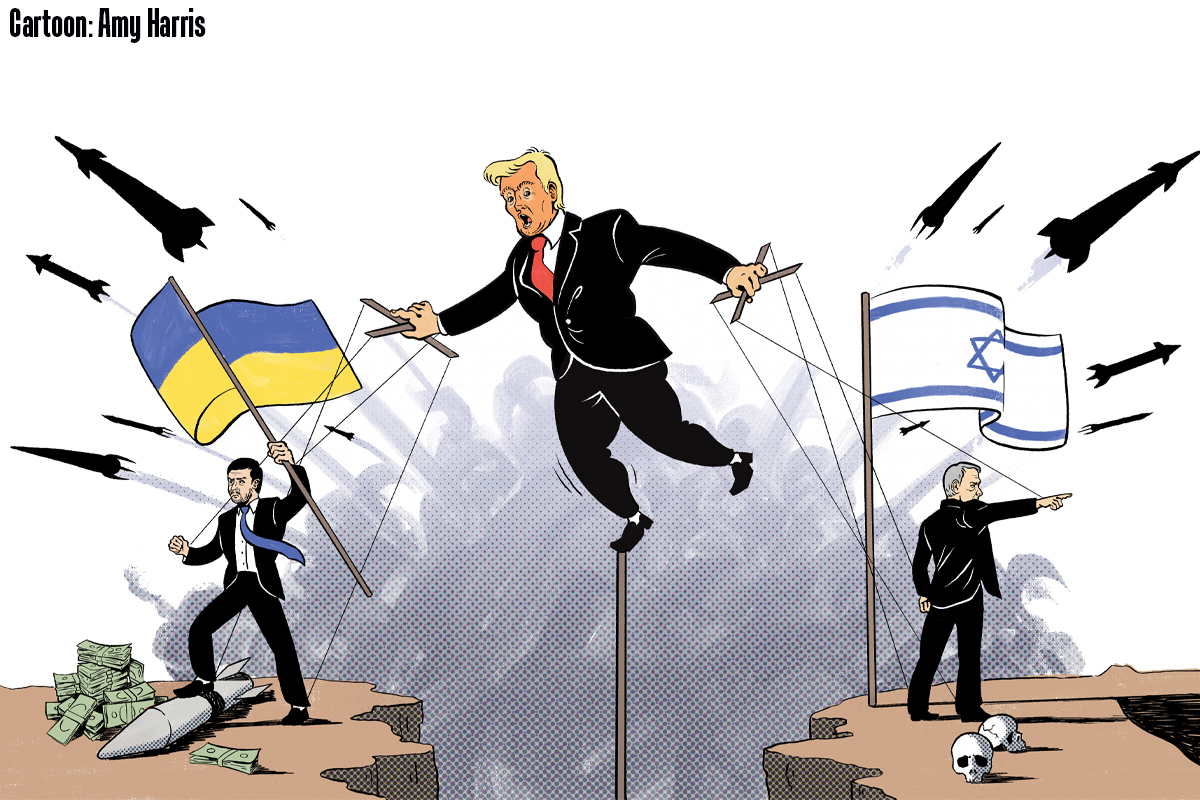After years of stagnation and struggle under the “Socialist” government of Hollande in France, the establishment parties have been completely discredited and the situation has grown into a full-blown political crisis. The next presidential election, taking place in the next few months, is set to be the most unpredictable in generations.
Two years ago, an editorial in the Financial Times described France as being in a pre-revolutionary situation. That may have been an exaggeration, but it was certainly a reflection of the impasse of French society. Now that impasse has grown into a full-blown political crisis.
This, in turn, is a reflection of the upheavals throughout the rest of the capitalist world, where the post-war liberal consensus has collapsed. The next presidential election – the first round of which is on 23rd April – is set to be the most unpredictable in generations.
Rejection of the mainstream
For decades, France has been ruled by traditional bourgeois parties, inter-spaced by Socialist governments. In the end, all have tried to place the burden of the crisis of French capitalism onto the backs of the working class, but have been consistently met with massive opposition from the working class.
“Voters have the feeling that mainstream parties from left and right have presided over a permanent state of economic crisis and mass unemployment,” says M. Garrigues, professor of contemporary history at Orléans university, speaking in the Financial Times (2nd February 2017). “This phase is coming to an end, with voters rejecting anyone associated with what is perceived as a failure.”
This endemic malaise was further deepened by Hollande’s abandonment of his left-wing promises right from the start of his mandate — regarded as another betrayal by many Socialist voters, while also failing to produce tangible economic results. These betrayals have served to upset the political apple cart.
Macron, Hamon, and Mélenchon
 Today, we are presented with an unprecedented crisis of the capitalist establishment. Following the Brexit result and the election of Donald Trump in America, the French elections are unpredictable. There is turmoil in the traditional parties, which make the outcome uncertain, where anything could happen. Right Republican candidate, Francois Fillon, once the unassailable favourite after defeating the scandal-prone former President Sarkozy, has been embroiled in a scandal after accusations that his wife received more than €900,000 of taxpayers’ money for fake work she did not do. Despite his apologies, his poll ratings collapsed. The irony of this is that, as a good bourgeois politician, his campaign was based on a promise to “restore high moral standards” in politics! In a recent poll, less than one in four believed he was “honest”. However, his withdrawal would be catastrophic and therefore unlikely at this late stage. They are lumbered with him, intensifying the growing instability.
Today, we are presented with an unprecedented crisis of the capitalist establishment. Following the Brexit result and the election of Donald Trump in America, the French elections are unpredictable. There is turmoil in the traditional parties, which make the outcome uncertain, where anything could happen. Right Republican candidate, Francois Fillon, once the unassailable favourite after defeating the scandal-prone former President Sarkozy, has been embroiled in a scandal after accusations that his wife received more than €900,000 of taxpayers’ money for fake work she did not do. Despite his apologies, his poll ratings collapsed. The irony of this is that, as a good bourgeois politician, his campaign was based on a promise to “restore high moral standards” in politics! In a recent poll, less than one in four believed he was “honest”. However, his withdrawal would be catastrophic and therefore unlikely at this late stage. They are lumbered with him, intensifying the growing instability.
The new front runner is the pro-business “centrist” Emmanuel Macron, former Socialist economy minister and former Rothschild banker, who created his own party ten months ago. In a struggle between the capitalist crocodiles and the reptiles, this upstart hopes to gain from France’s disillusionment.
The ruling Socialist Party is in complete disarray. Faced with electoral annihilation, President Hollande ruled out a re-election bid, an unprecedented decision for a Fifth Republic leader. Meanwhile, Prime Minister Manuel Valls lost the Socialist nomination to the soft-left Benoît Hamon, who was also a former minister of Hollande. Given the disillusionment with Hollande and his government, Hamon will in all likelihood fail to make the run-off because he is, precisely, the candidate of the Socialist Party.
Given these difficulties, he may seek to strike an alliance with left leader Jean-Luc Mélenchon, who is polling at about 10 per cent, but that would be a poisoned chalice for Mélenchon. He came fourth in the 2012 election as the candidate of the Left Front, a union of radical parties including the Communist Party, by tapping into France’s long tradition of revolutionary politics through fiery speeches. He is running in this year’s race with the belated backing of the Communist Party and has instead created a new movement, “La France Insoumise” (Rebellious France), on a left-wing anti-austerity platform. This could become the focal point for a real Left alternative to the Right, if it succeeds in tapping into the disillusionment of the youth and working class generally. The IMT in France considers such an outcome the best option and is defending the programme of Marxism within this perspective.
Le Pen and the National Front
The scandals gripping the bourgeois parties have thrown the race into chaos. The right-wing National Front is hoping to capitalise on this. Marine Le Pen is hoping to make the run-off in May. In order to become more respectable, Le Pen has sought to detoxify her party of its association with its anti-Semitic, xenophobic roots. It is emerging as a traditional right-wing populist party, which has built support on an anti-establishment, anti-immigrant ticket, attacking the EU, globalisation and the loss of jobs.
Out of bitter frustration, half of the blue-collar workers, lower-earning employees and low-skilled youths — about 40 per cent of the working population in total — say they back her plan to exit the EU and to clamp down on immigration, according to Cevipof surveys.
The responsibility for this lies squarely with the betrayals of the Socialist Party, the party of government, which has presided over mass unemployment and deepening crisis. Responsibility also lies with the capitulation of the so-called Communist Party, which has trailed after Hollande’s party. This bankruptcy arises from the failure of reformism, the attempt to work within the confines of a crisis-ridden capitalist system. This capitulation has helped to open up the way, at least temporarily, for the far-right National Front.
A reflection of the political crisis is the recent demise of key bourgeois politicians consigned to the rubbish bin of history. Nicolas Sarkozy, the former president, was eliminated. Then Alain Juppé, a former prime minister, was defeated for the nomination by Fillon. Now, as we have seen, scandal-ridden Fillon is in difficulty.
“The old world is crumbling,” says Dominique Reynié, head of Fondapol, a centre-right think-tank. “If Ms Le Pen were to face Mr Macron, who has not been tested in any elections, it’s the unknown. Macron’s polls are not reliable because he has no history in French politics.”
“It has never been that unstable and that uncertain,” says Luc Rouban, a Sciences Po Cevipof professor of politics. “We are witnessing a complete overhaul and a polarisation of the traditional French political offering. Meanwhile, voters’ behaviours have become so complex that pollsters and analysts have a harder time predicting them.” Whatever happens, France is set for a new era of unstable governments. “And mechanically this will reinforce the extremes,” adds Rouban. “The Fifth Republic is crumbling before our eyes.”
“The lesser evil”
The threat from Le Pen has caused shock and dismay. Faced with the prospect of two right-wing candidates in the second round, some on the left have lost their heads by calling for “anyone but Le Pen vote”. They hysterically describe Le Pen and the National Front as “fascist”. However, this is incorrect, as it ignores the real essence of what Fascism is. Le Pen and the NF are certainly right-wing and politically, while they play up the issue of immigration and are anti-EU, there is no fundamental difference between them and the other bourgeois parties.
Fascism is altogether very different. Fascism is the mass movement of the enraged middle class, the lumpenproletariat, the peasants and even some politically backward workers, financed and organised by big business as a desperate last resort to prevent the socialist revolution. The role of Fascism is to mobilise a mass force to destroy all the workers’ organisations and atomise the working class. Using the frenzied middle class as a battering ram, with the support of the army and police, fascism extinguishes every single democratic right. This is certainly not the programme of today’s National Front, which is right-wing but not fascist. That does not mean we should not mobilise against them, but Marxists should also not fall into the mistake of confusing different phenomena. From this fundamental mistake can be made, such as presenting Fillon, or any other bourgeois politician as being preferable to Le Pen.
The idea of sowing illusions in any right-wing candidate as “the lesser evil” is a betrayal. All bourgeois parties are equally reactionary. We say no truck with the Right! The only way to fight reaction is by taking an independent working class stand and fighting any right-wing presidency in the workplaces and on the streets.
Which way forward?
Engels once explained that France was the country in Western Europe where the class struggle “is always fought to the finish.” Ever since 1789, the history of France has been a rich one of revolution and counter-revolution. The revolutionary general strike of May 1968 – when power was in the grasp of the French workers – still strikes fear into the hearts of the French ruling class, as they are perfectly aware of the revolutionary potential of the French workers. This is not the time to despair and seek salvation in this or that bourgeois politician. It is also not the time to seek salvation in a figure such as Hamon.
At present, Mélenchon offers the most radical left alternative among the various candidates who will stand in the coming presidential elections – albeit with all his reformist limitations. Mélenchon has the potential to create an important point of attraction on the left, around which a mass left force could emerge. At the present conjuncture, this is the road to go down for anyone wishing to build a serious alternative in France.
The Marxists will play their role by giving support, but by also systematically pointing out the weaknesses and limitations of Mélenchon’s programme. There is no solution to the present crisis within the confines of capitalist, and this applies to France as much as to any other country. As in 1968, what is required today is the socialist transformation of France. This time we need to carry it through to the end.
France: Benoit Hamon and the Farce of “Uniting the Left”
By Jérôme Métellus

The defeat of Manuel Valls in the Socialist Party primary was celebrated, or at least appreciated, by far more than the 1.2 million who voted for Benoit Hamon. Valls, the former prime minister, is one of the most consistent representatives of the right-wing, pro-capitalist, leadership of the PS.
During the party primary of 2011, he was supported by a small minority: 5.6% of the voters. In spite of this, President François Hollande entrusted him first with the Ministry of the Interior, then the Prime Minister’s office. The logic of this promotion was clear. Faced with a deep crisis of capitalism, the French ruling class was demanding severe counter-reforms, and to carry them out, a head of government with a firm grip, impeccable cynicism and total devotion to the cause of big capital was needed, in short, Manuel Valls.
He has now been relegated to the background of political life, at least for a few months. Good. But Valls represented only the leading edge of a long rightward drift of the entire PS leadership. The policies of the Hollande government, opposed by the grassroots, had the support of the overwhelming majority of “socialist” MPs and in all this the left wing of the PS followed the right wing like its shadow. They were cowardly and inconsistent. The so-called “rebels” protested, issued numerous communiqués, and urged Hollande to carry out a less brutal policy. Then, when the time came, they put to one side their criticisms and voted for the reactionary bills proposed by the government; most importantly the budgets. Whenever they pushed their discontent to the point where they threatened not to vote for certain bills, (such as the Macron law and the El Khomri law) Valls would invoke section 49-3 of the constitution to pass the bills without a vote, confident that these “rebels” would not support a motion of no-confidence. Such is the pathetic track record of the “left wing of the PS” over the last five years.
Benoit Hamon was no better an opponent of the government’s policies. In fact, for two years he was not the least bit opposed to them. As a cabinet minister from May 2012 to September 2014, he publicly defended these policies, which were marked from the beginning by renouncing campaign promises and an alignment with the interests of the “world of finance.” In cooperation with Arnaud Montebourg, Hamon pressured François Hollande to remove Jean-Marc Ayrault as prime minister and replace him with Manuel Valls. The two conspirators were rewarded with more important cabinet posts. But as we have said, the promotion of Valls stemmed from factors much more powerful than these manoeuvres. It signalled an acceleration of the government’s right-wing policies. Five months later, Hamon and Montebourg, who were beginning to murmur some subliminal criticisms, were dropped by Valls and sacked by Hollande. In a sense, they were the collateral victims of their own schemes.
In anticipation of the PS primary, Montebourg frequented the employers’ organisations. Hamon, on the other hand, joined the ranks of the dormant “rebel” legislators, whose ritual rites he immediately adopted: verbal protests in the morning, voting for reactionary bills in the evening. But at the same time, he had ample time to sit back and watch the support for the government and the PS leadership collapse, which opened up the possibility for him to break through in the primary. As a minister he had not been as exposed as Montebourg. Hollande and Valls were completely discredited and therefore he had a path. Hamon tinkered with a “left-wing” programme and, riding the wave of massive rejection of Valls, he easily won the primary.
“Uniting” the careerists
Since the primary, there has been a continuous refrain that “the left must unite!” This hollow formula is repeated continuously by Benoit Hamon, his advisors, a large majority of the “socialist” MPs, the government, environmental leaders and, regrettably, by the leadership of the French Communist Party. Unite what, exactly, which forces, and on which programme and perspective? None of those who chant “unite” ask this question clearly, because to do so would reveal the fraudulent nature of the whole affair.
Hamon and his advisors are pleased to have already “united” a large majority of PS legislators. But all of them voted for the reactionary government policies for the last five years, and many of them supported Manuel Valls in the primary. If they “unite” behind Hamon, it is pure pragmatism. At this stage, they consider that this is the best option considering that legislative elections are coming in June. There is not the slightest difference in principle between those who engage in this calculated support, and those who support Emmanuel Macron (the former “Socialist” cabinet minister who is now running an independent campaign). Some of them even say they could change their options along the way, depending on the situation. Truly a magnificent “unity”!
The programme on which Benoit Hamon won the PS primary is rejected by the overwhelming majority of the MPs and the apparatus of the party. For example, they supported the El Khomri law, which the winner of the primary pledges to repeal. Have they changed their minds on the subject? Of course not. Hamon does not expect them to. Instead of relying on his victory to launch a serious fight against the right wing of the PS, he proposes amnesty for this criminal betrayal, under the guise of “uniting the left.” In doing so, Hamon exposes the inconsistency of his own ideas, which appear to be variables adjusted, depending on parliamentary and bureaucratic considerations.
Having thus “united the Socialist Party,” that is to say most of its careerists, Hamon insists that Jean-Luc Mélenchon should also climb on board. The candidate of France Insoumise declined the invitation to board this sinking ship. He is a thousand times right to stay away. Youth and workers seeking an alternative to the crisis of capitalism do not need political manoeuverers and “unity,” but political clarity!
Hamon and Mélenchon
Jean-Luc Mélenchon’s campaign has already won support from the most conscious and radicalised layer of the youth and workers’ movement. These elements will not fall into the trap of the “unity” of everyone and everything. Moreover, the campaign of Hamon is going to be weighed down by the simple fact that it appears under the label of the PS. Many who voted for François Hollande in 2012 do not want to hear anything more about this party. In general, the current period is marked by extreme volatility of opinion. The electoral potential of Mélenchon is therefore as significant today as before the PS primary.
Mélenchon and the leaders of France Insoumise must continue – as they have thus far – unmasking the hypocritical manoeuverers of the PS leaders, be it Benoit Hamon or the right wing of the party. They should also give a detailed account of the recent history of the PS candidate, from his participation in the government between 2012 and 2014, to his activities as a “rebel” without rebelling, including his votes in the National Assembly. There is an important campaign of education to be carried out, for it will be necessary not to rely too much on Hamon himself to explain where he comes from and where he is going.
Of course, Hamon’s programme must also be criticised, as it is much more moderate and confused than that of France Insoumise. However, it should be noted that for a significant number of young people and left-wing workers, these two programs on the surface can appear to be quite similar to each other. This idea gives fuel to the argument for the “unity of the left.” This is a difficulty that cannot be solved simply by detailing the concrete differences between the programme of Hamon and that of France Insoumise “l’avenir en commun.” Most workers and youth look at programs “from a distance,” so to speak, without getting into all the details. If from this point of view many of them feel that the two programs are quite close, that is because they are in some respects. Both programmes are sets of progressive reforms (except for the “universal basic income,” which is not). Taken as a whole, these reforms go in the right direction, but do not mark a break with the capitalist system. In other words, these two programs are reformist – when the bankruptcy of capitalism calls for a radical, revolutionary transformation of society.
By complementing the programme, with measures aimed at shattering the economic power of large-scale capitalists – which would mean their expropriation – France Insoumise would kill two birds with one stone. On the one hand, they would be clearly distinct from the reformism of Benoit Hamon. On the other hand, this would give them the means to implement the progressive measures of the program if they take power, as these measures cannot be realized within the framework of capitalism in crisis.






